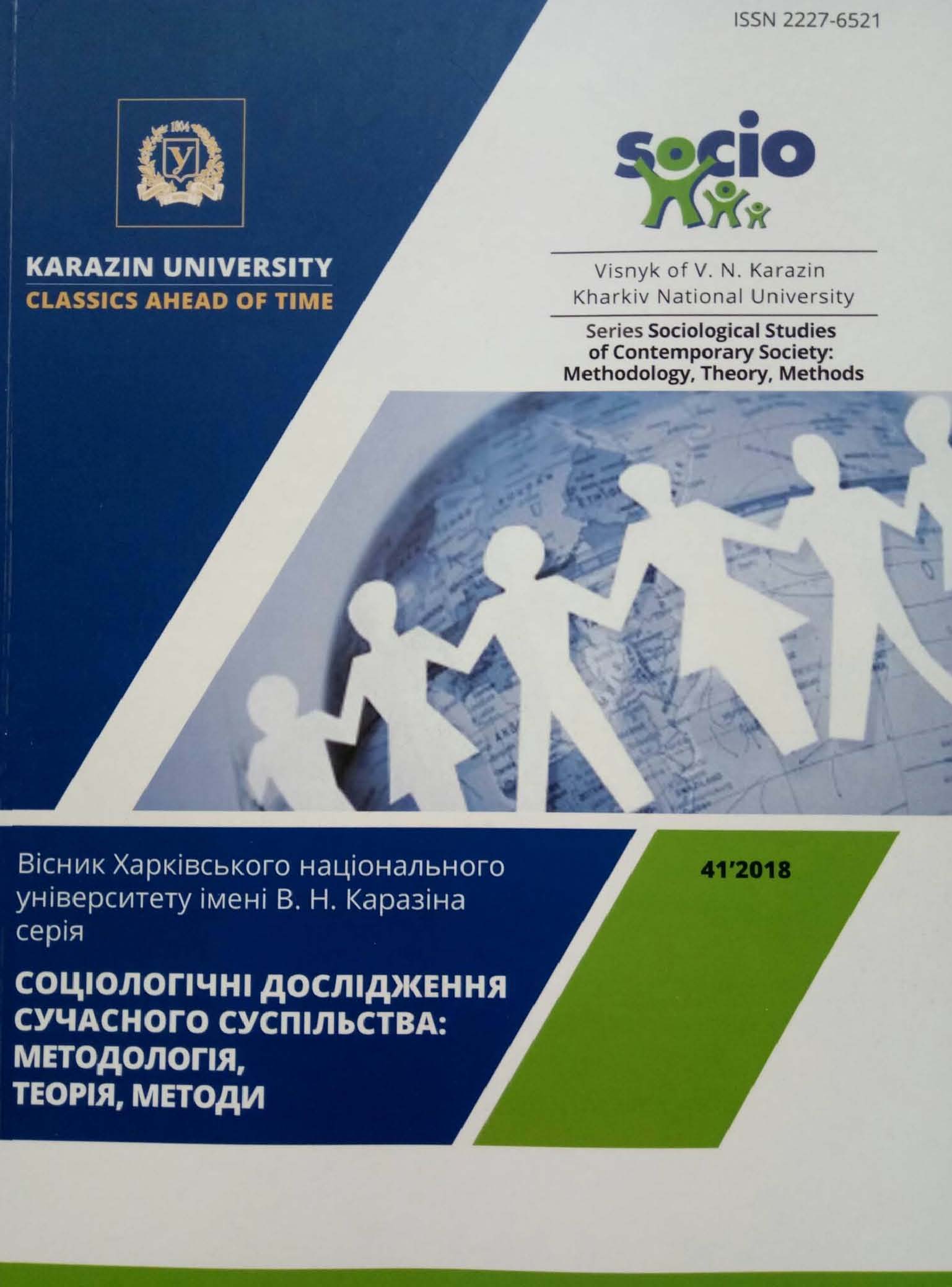The Global Crisis of the Contemporary Labor Practices as a Source of Reproduction of the Intercultural Conflicts, Social Risk and Social Tension
Abstract
The article presents the elaborated analytical sociological approach that is aimed at the scientific study of the social determinants of the global crisis of the contemporary labor practices as sources of the new social conflicts, social risk and social tension. The importance of the further development of sociological researches which are aimed at creating a new conceptual base for understanding labor as the fundamental transcultural stimulus for the resource of development of the contemporary societies and as an important factor for supporting and strengthening of the integrative foundations of the social and public space is argued. It was stated that the process of creating of such conceptual base presupposes the more active introduction into scientific discourse of such concepts as «social space», «public space», «intercultural conflict», «social tension». The analysis of specialized concepts of social and public space that were developed in Western sociology in order to explain the specifics of conflict manifestations in individual and collective labor practices was carried out. The necessity of further development of scientific researchers of the new intercultural conflicts, manifestations of social risk and forms of social tension in individual and collective labor practices, which are reproduced in the multicultural public space of the contemporary societies, is proved. Underlined that the formation of intercultural conflicts in the system of labor practices is determined by the influence of constantly latent and protest forms of social tension, which are really the contradictory manifestations of strengthening both the processes of social exclusion and also the ineffective social inclusion of the working and unemployed population in the existing institutional systems of labor activity.
Downloads
References
Sudakov V.I. The global determinates of the conflict interactions in the contemporary models of employment. Public management. 2017. N3 (8). P. 335-342.
Johnson B.V. Pitirim A. Sorokin on Order, Change and the Recostruction of Society. Comparative Civilizartion Review. 1999. N 41. P. 25-41.
Bourdieu P. The Social Structures of the Economy. Cambrige: Polity Press, 2005. 240p.
Habermas J. The Structural Transformations of the Pubic Sphere. Cambrige (Mass): The MIT Press, 1991. 301p.
Habermas J. The Divided West. Cambrige; Polity press, 2006. 224p.
Аrcher M. The sociological approach to the tension between equality and social inequality. The Study of the Tension between Human Equality and Social Inequalities. From the Perspectives of the Various Social Sciences. Vatican city: Academy of Political Sciences, 1996. Acta 1. P.81-99.
Atkinson A.B. Social exclusion, Poverty and Unemployment. Exclusion, Employment and Opportunity J. Hills eds. London: School of Economic and Political Science, 1998. P. 1-20.
Sorrells K.S. Intercultural Communication, Globalization and Social Justice. (2nd ed,). Los Angeles: Sage publ. 2016. 331p.
Bouget D. Social Tension: some general elements. Oslo: The Peace Institute. 2008 35p.
North D. C., Wallisd J. J., Waingast B. B. Violence and Social Orders. A conceptrual framework for interpreting recorded human history. N.-Y.: Cambrige univ. press. 2013. 320 p.
Urry J. Sociology beyond Societies: Mobilities for the Twenty-first Century. London: Routledge. 2000. 266 p.
Beck U. World at Risk. London: SAGE Publ. 2009. 226p.
Latour B. Reassembling the Social. An Introduction to Actor-Network Theory. N.-Y.: Oxford: Univ.press. 2005. 303p.
Bauman Z. Individulized Sosiety. Cambrige: Polity press. 2008. 272p.





